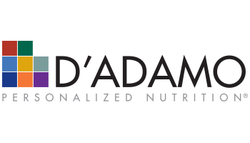
If you suffer from hay fever, you’re not alone. According to the Asthma and Allergy Foundation of America, more than 50 million Americans have seasonal allergies. Of course, that’s little consolation to anyone who endures the unpleasant symptoms year after year.
Typical outdoor allergens include pollen from various trees, grasses and weeds—wreaking havoc on unsuspecting immune systems from early spring through late fall. The impact can range from mildly annoying to absolutely debilitating, with common symptoms being nasal congestion, sneezing, itchy, watery eyes or headaches.
So, what can you do about allergies? Can the food you eat really make a difference? The answer is a definitive “Yes!” Read on to learn more about how your diet plays a critical role in improving (and even eliminating) the effects of seasonal allergies.
Why are some people allergic and others are not?
To start, it’s important to understand what causes allergies to begin with. Why are some people allergic and others are not?
The simplest explanation has to do with the overall burden our bodies can carry before reaching a “breaking point.” We’re all exposed to environmental pollution and toxins. Those are burdens our bodies must bear. Then individually, we add things like stress, lack of sleep, lack of exercise, medical conditions and, of course, poor diet.
Each person has a different tolerance level, but once maximum capacity has been reached and the additional stress of seasonal pollen exposure is added, the body just can’t carry it all. The immune system overreacts, and allergy symptoms are the result. That’s one reason that the right diet is so effective. It removes a great deal of the burden.
The important role of diet
More than half of your immunological activity is located in your digestive system. So, it makes sense that eating the proper diet goes a long way towards balancing immunity and relieving uncomfortable allergy symptoms.
That leads to the question, “What IS the proper diet?” The answer is unique to each person and is based on your distinct biochemical signature. Foods that are beneficial to one person may be harmful to another. And all that it takes to unlock the mystery of what defines you as an individual (biochemically speaking) is one single drop of blood. Knowing your ABO Blood Type offers meaningful insight into improving your health, vitality and overall wellbeing, and that includes alleviating allergy symptoms.
The Blood Type connection
Your blood type provides important clues about the biological and genetic systems that control health and disease. In other words, eating right for your blood type promotes a healthy immune system.
More specifically, when you eat, there is a chemical reaction between your blood and the foods you consume. It has to do with proteins called lectins that are found in many foods. If you eat a food that contains lectins incompatible with your blood type, those lectins cling or bind themselves to membranes in the digestive tract causing damage such as inflammation. (Learn more about lectins and blood types here.)
Lectins stress your body. When environmental allergens such as pollen are introduced into an already stressed system, it can be too much for your body to handle. The result is allergy symptoms.
So, what should I eat to reduce allergy symptoms?
Following a personalized nutrition plan that is right for your blood type (especially during allergy season) provides your body with the support it needs.
For example, those with Blood Type A lack some of the enzymes and stomach acids needed to effectively digest animal protein. When they over consume meat, the undigested by-products can create a toxic environment. However, for those with Blood Type O, high-quality animal protein is easily digested and is critical in helping ward off intestinal problems associated with allergies.
As long-time Blood Type Diet followers will attest, incorporating blood-type-specific diet and lifestyle strategies has an almost miraculous effect. Maintaining a healthy weight becomes effortless, energy increases and yes, it’s even possible for pesky allergy symptoms to disappear.
How to get started with The Blood Type Diet
Eat Right 4 Your Type by Dr. Peter D’Adamo is an excellent place to start, with a detailed explanation of his Blood Type Diet and listings of blood type categorized foods — all broken down by Beneficial, Neutral and Avoid. It even includes a 10-day jump start challenge — the perfect way to test the effectiveness of The Blood Type Diet for yourself. To keep Blood Type Diet food lists at your fingertips and create a shopping list for multi-blood-type families, try the Official Blood Type Diet App.
For those seeking an even more targeted approach to addressing allergies, Dr. D'Adamo's Allergies: Fight Them with The Blood Type Diet is the ideal companion book. It offers individualized treatment plans for every blood type, providing blood-type-specific protocols for those looking to aggressively treat allergies.
Don’t know your blood type? Get started with our Original Home Blood-Typing Kit.
If you’re one of the millions who suffer from seasonal allergies, you’ve probably tried addressing your symptoms. By changing your diet, you can combat allergies at their source. Following a blood-type-specific diet can reduce inflammation and stop allergy symptoms before they start.


